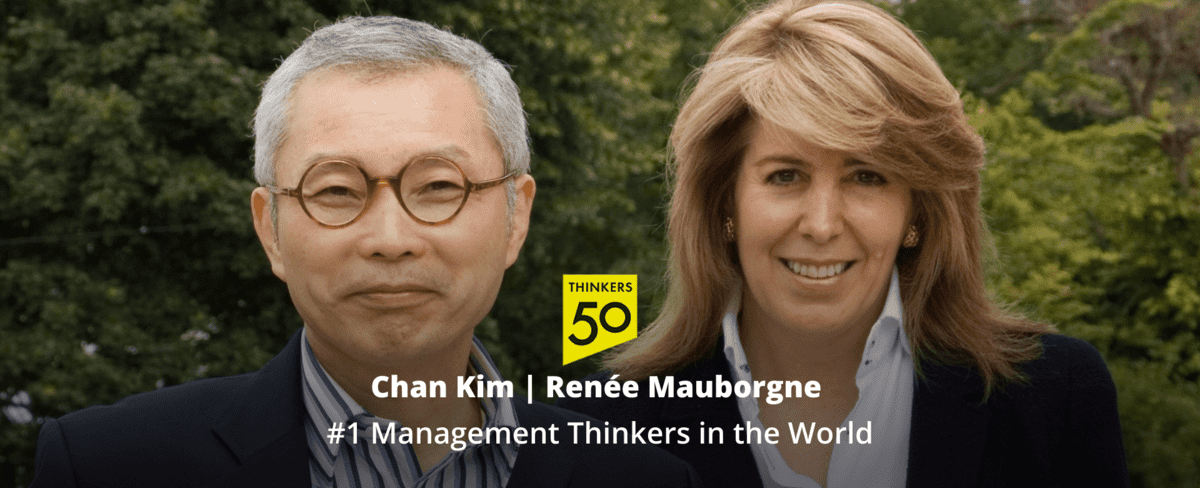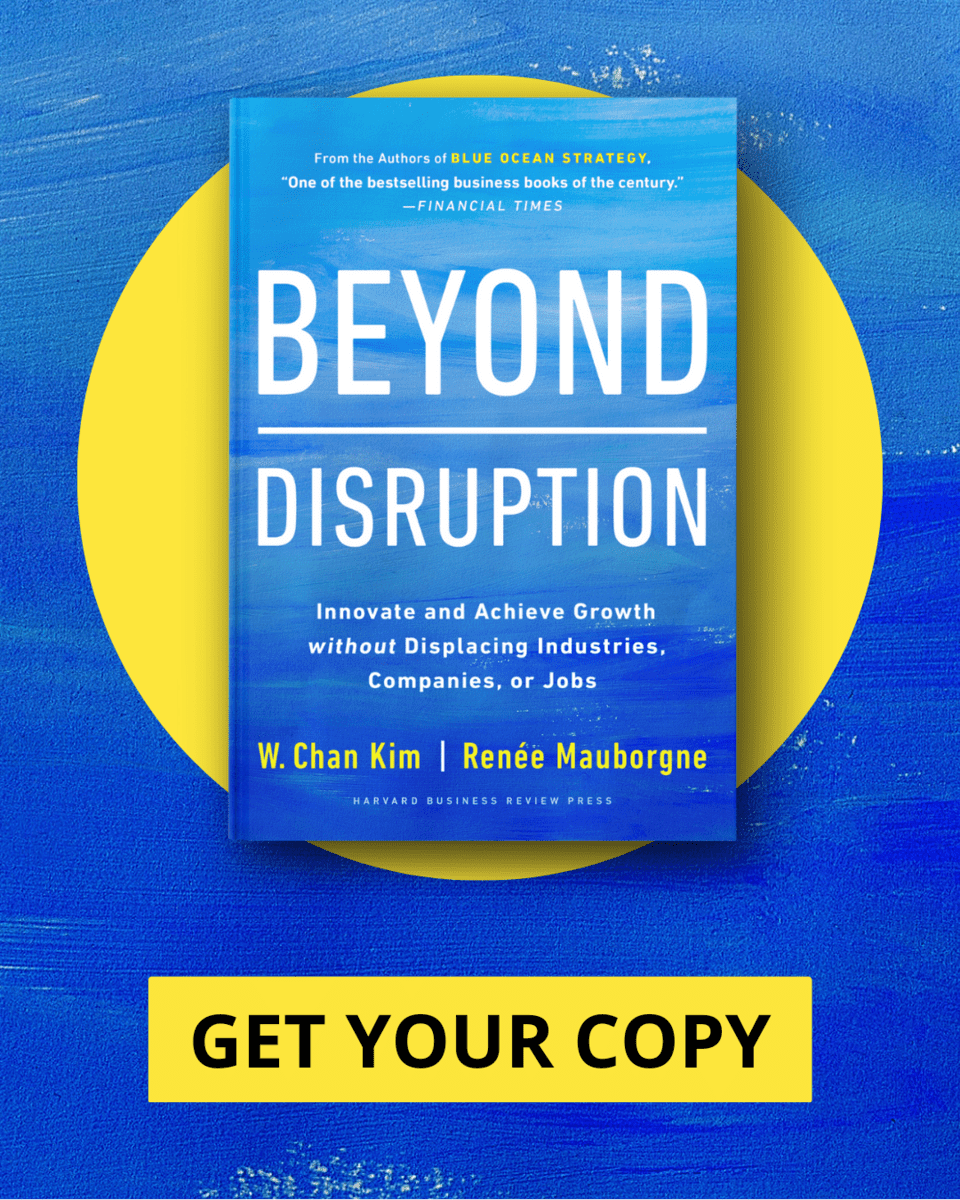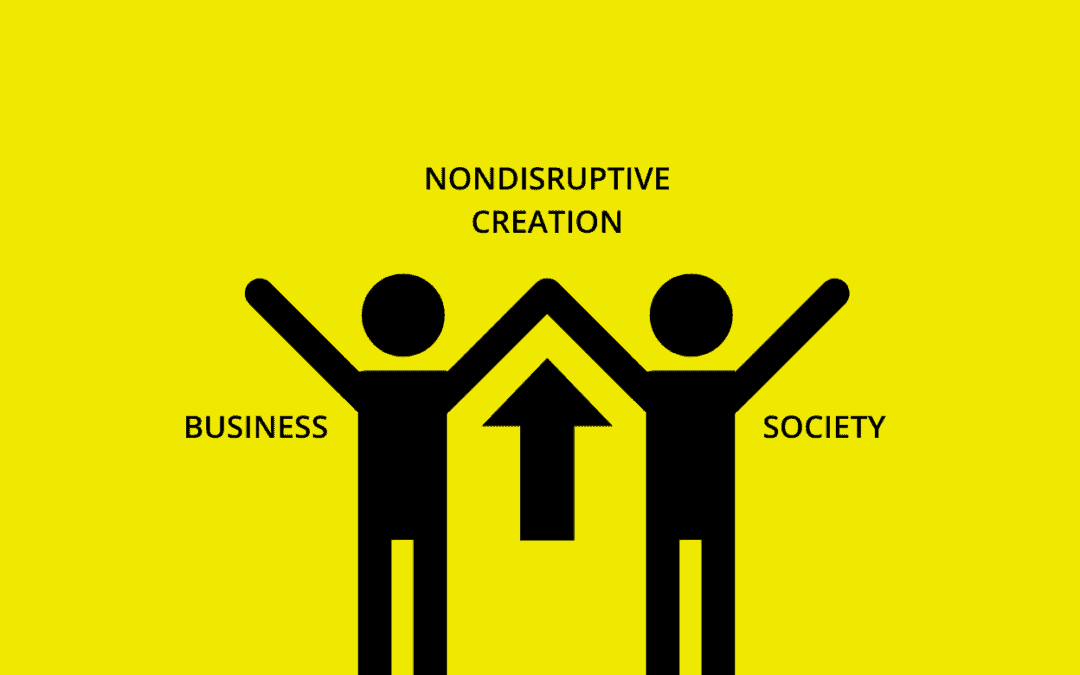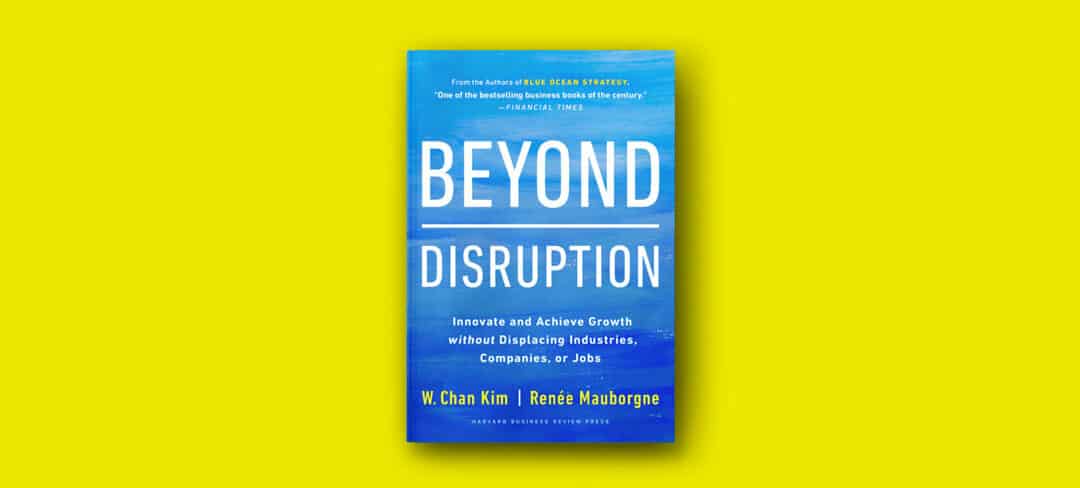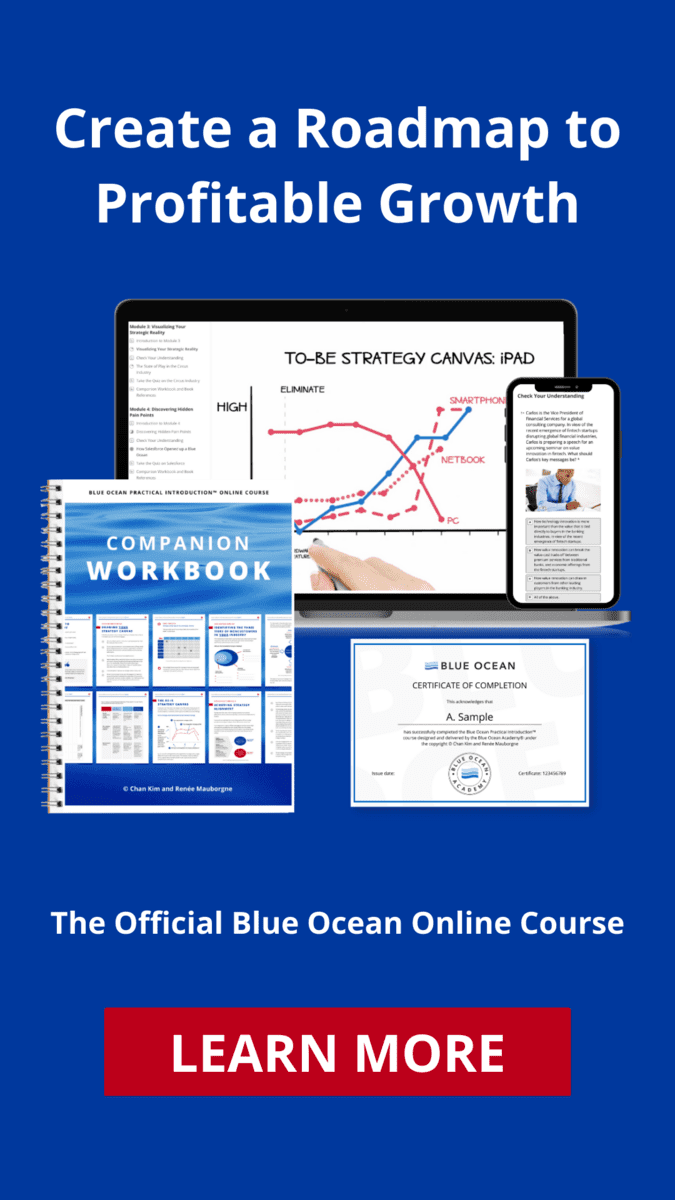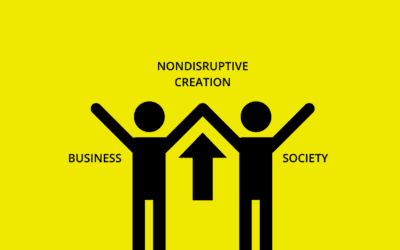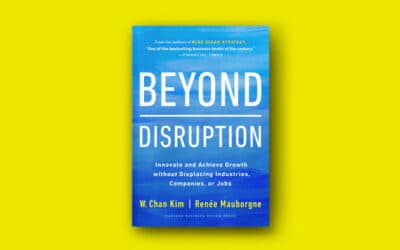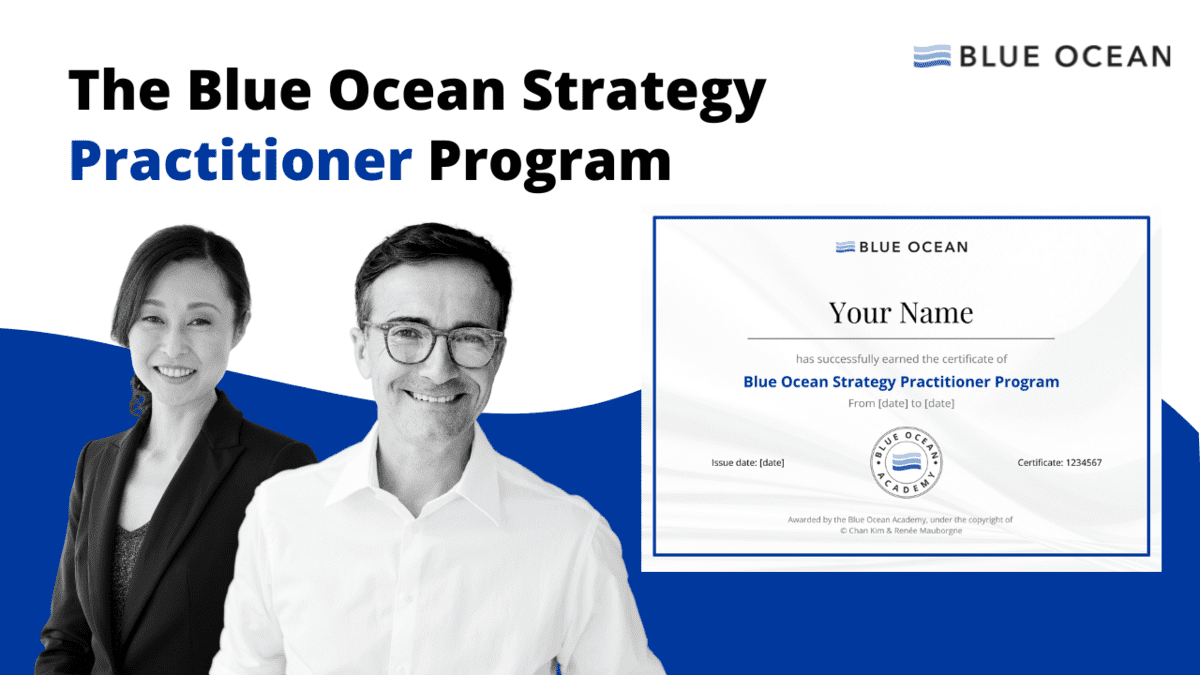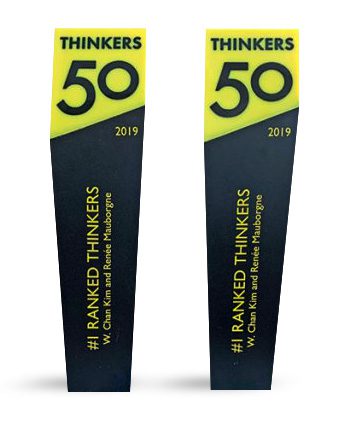
Thinkers 50 2019 ranking
Chan Kim and Renée Mauborgne topped the list and secured the #1 spot as the World’s Most Influential Business Thought Leaders for the far-ranging global impact of their blue ocean theory and practice. A position previously held by the likes of Peter Drucker, Michael Porter, CK Prahalad, and Clayton Christensen.
The most influential management thinkers in the world
Chan Kim and Renée Mauborgne’s theory of blue ocean is recognized as one of the most iconic and impactful theories of strategy ever created. It is taught in over 2500 universities and in almost every country in the world with their book Blue Ocean Strategy now selling well over 4 million copies and their recent book Blue Ocean Shift a New York Times and #1 Wall Street Journal Best Seller.
Their blue ocean theory and published cases on blue ocean place them in the top ten bestselling case authors and have landed their ideas on over 300 bestseller lists across the globe. Adopted by corporations, governments, and nonprofit organizations across the world, Chan Kim and Renee Mauborgne’s research is recognized as academically robust, and practically actionable and accessible, opening a new path to build and believe a better world is possible.
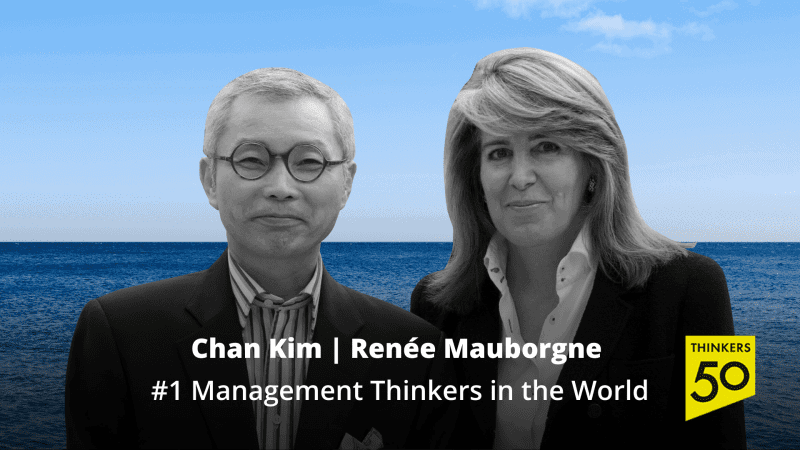
Chan Kim and Renée Mauborgne named “the World’s Most Influential Management Thinkers”: Thinkers50.
Both Chan Kim and Renee Mauborgne are professors of strategy at INSEAD and co-directors of the INSEAD Blue Ocean Strategy Institute. It is the first time that professors from a European business school, here INSEAD, have been named as the world’s most influential management thinkers.
Chan Kim attended Thinkers50 2019 in London to receive the award on behalf of their team and research collaboration. Here is the transcript of his acceptance speech which summarizes over 30 years of research together and maps out what’s next to come from the Professors.
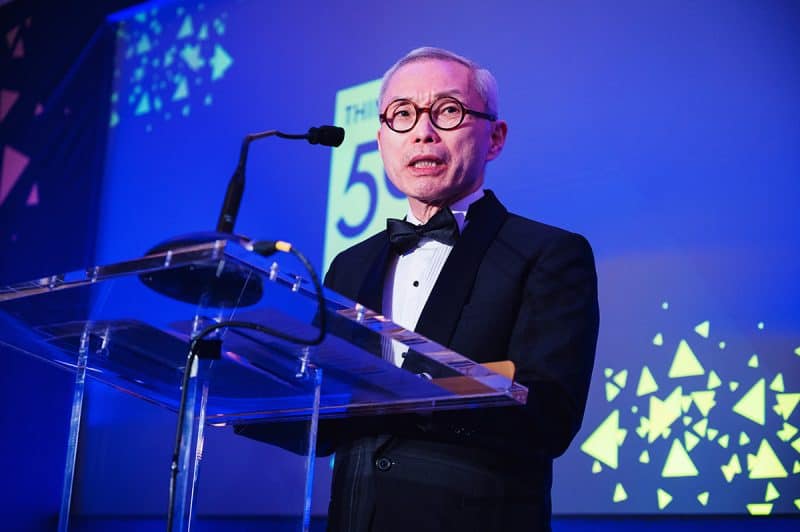
Cham Kim at Thinkers 50 giving the acceptance speech.
Blue Ocean acceptance speech
In the spring of 1986, Renee Mauborgne and I were having a conversation at the University of Michigan Business School. “Why is strategy focusing so much on competing?”; “Shouldn’t strategy be also about creating?”; “Shouldn’t strategy be about creating tomorrow while competing today?”; “If so, why is the creating part missing in strategy?”
These questions ignited our 30-year research journey to the blue ocean. Our initial results were a series of academic and managerial articles, culminating in our book, Blue Ocean Strategy 2005 & 2015. There, we showed both how the strategic pattern and process of creating fundamentally differ from those of competing and how creating and competing complement each other and work together as the distinctive components of strategy.
Since the publication of Blue Ocean Strategy, we faced challenging follow-up questions like; “how does the theory of blue ocean or market-creating strategy differ from that of creative destruction or disruption?”; and “how do we, human beings, interact with the process of strategy and innovation?”
Blue Ocean Shift published in 2017 was our attempt to address these questions. There, we introduced the notion of nondisruptive creation, creation without disruption, as a key missing dimension of market-creating innovation and showed why market-creating innovation should embrace both disruptive and nondisruptive creations to fully explain the history of its growth consequences. We also showed how “humanness” and “confidence” play critical roles in the process of strategy and innovation.
Blue Ocean Shift invited yet another set of questions; “how does nondisruptive creation improve the existing theory and practice of innovation and growth?”; “If nondisruptive creation is a win-win innovation strategy for both business and society as blue ocean shift proposes, how does this work in concrete terms? And what are the specific ways to pursue nondisruptive creation successfully in action?”; “how should the existing thoughts and practices of management evolve to ensure business as a force for good? These are the questions that currently occupy our minds in search of answers.
While Renee and I still have miles to go, we are grateful for this honor. Our appreciation goes to INSEAD, all of you including Thinkers50, and blue ocean friends around the world. With all humility, Renee and I accept this honor not as a victory of our ideas but as that of our friendship that has deepened through our struggling research journey over thirty years. Thank you.
About Thinkers50
Founded in 2001, Thinkers50, dubbed the “Oscars of Management Thinking”, identifies, ranks, and shares the very best management ideas globally. Every two years, the Thinkers50 presents the definitive global ranking of the 50 most influential business thinkers. Previous top-ranked thinkers include Peter Drucker, Michael Porter, Clayton Christensen, and CK Prahalad.
In 2019, more than 5,000 people participated in the evaluation process, submitting nominations for the ranking and the Distinguished Achievement Awards.
About Stuart Crainer and Des Dearlove
Des Dearlove and Stuart Crainer are the founders and directors of Thinkers50. For nearly two decades, they have been the recognized masters of finding and promoting the most accomplished and promising business and management thinkers worldwide. Internationally recognized experts on business ideas, they are the authors of more than 15 books available in 20 languages, editors of The Financial Times Handbook of Management, and are both former columnists to The Times. They advise thinkers and organizations around the globe.
